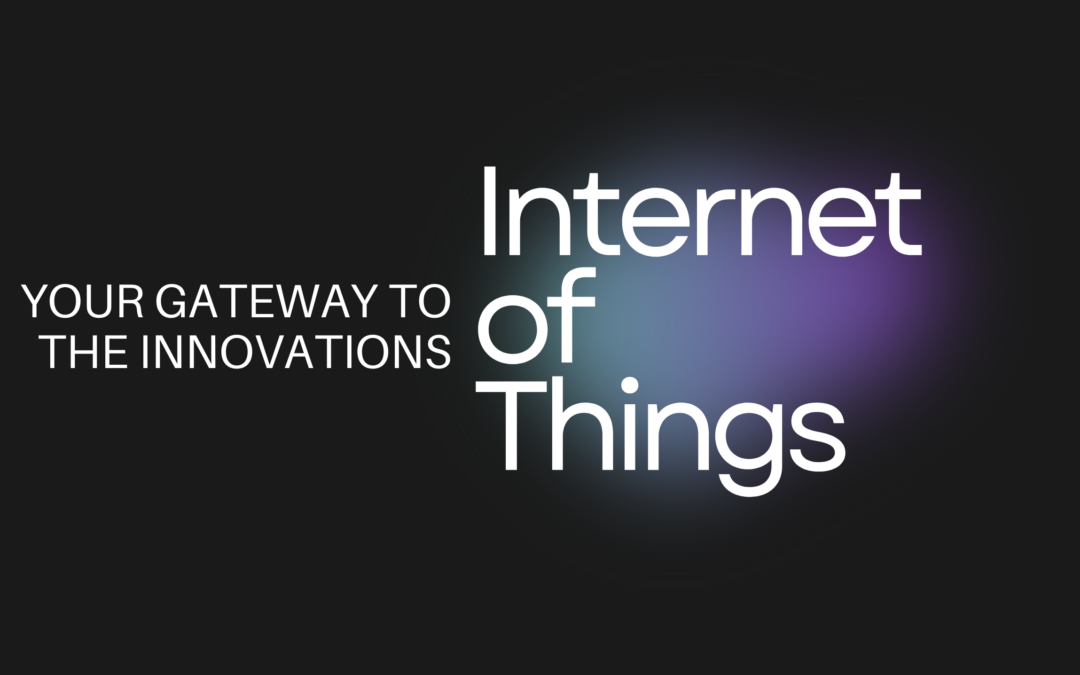In today’s technology-driven world, the Internet of Things (IoT) is set to reshape how businesses operate, engage with customers, and drive growth. By 2024, advancements in IoT technology will be increasingly integrated into critical business sectors, enhancing automation, predictive analytics, and security measures. For sectors like healthcare, retail, and manufacturing, IoT is not only a tool for connectivity but a strategic driver of productivity and customer engagement. Here’s an exploration of the top IoT trends that are changing the landscape of business in 2024.
Growth in Automation Through IoT
Automation continues to be a top IoT trend as it minimizes repetitive tasks, optimizes workflows, and cuts operational costs. With IoT sensors and devices, companies can monitor systems and environments in real-time, automating functions such as equipment monitoring, energy management, and inventory tracking.
In manufacturing, IoT-driven automation reduces downtime by predicting machinery needs, while retail uses IoT for automating inventory and supply chain management, ensuring shelves stay stocked and customers are satisfied. For healthcare, IoT-enabled automation enhances patient care by remotely monitoring vital signs, detecting issues, and alerting healthcare professionals when intervention is needed.
Predictive Maintenance and Real-Time Analytics
Predictive maintenance, powered by IoT, is transforming asset-heavy industries like manufacturing and transportation. Using real-time analytics from IoT sensors, predictive maintenance monitors equipment health, anticipating when repairs are needed before issues become costly problems. This trend improves operational efficiency and equipment lifespan by addressing issues proactively.
For businesses, predictive maintenance reduces unexpected downtime, saves on repair costs, and enhances safety. By leveraging real-time data from IoT sensors, companies can make better decisions, adjust schedules based on equipment needs, and keep their operations running smoothly.
IoT Security Becomes a Critical Focus
With the expansion of IoT, security has become a priority. More devices connected to a network mean a higher risk of breaches if security is not effectively managed. In 2024, IoT security measures will see significant improvements, focusing on data encryption, secure device onboarding, and threat detection.
Industries like healthcare, where sensitive patient data is transmitted through IoT devices, are strengthening their security protocols to protect against unauthorized access. Similarly, retail businesses are enhancing IoT security to protect customer data and secure payment processing systems. Manufacturers are prioritizing IoT security to protect operational systems and data integrity, reducing the risks posed by cyber threats.
Enhancing Customer Engagement with IoT
One of the most promising aspects of the Internet of Things is its potential to elevate customer experience through real-time engagement and personalized services. In retail, IoT is being used to monitor customer preferences and buying behavior, providing real-time, data-driven insights. These insights enable companies to offer targeted promotions, personalized recommendations, and a more tailored shopping experience.
In healthcare, IoT enhances patient experiences by providing remote health monitoring, enabling patients to access healthcare services from their homes. For manufacturers, IoT helps track customer feedback on products in real-time, allowing adjustments and improvements to meet consumer demand better.
Expansion of IoT in Supply Chain Management
Supply chain efficiency has become vital for industries aiming to meet customer demand swiftly. IoT is set to revolutionize supply chain management by providing real-time tracking, predictive analysis, and automation in warehousing and logistics. IoT-enabled sensors provide businesses with accurate insights on inventory levels, shipment status, and warehouse conditions.
For example, in retail, IoT-enabled supply chains allow businesses to track products from manufacturer to store shelves, reducing stock shortages and improving customer satisfaction. In manufacturing, IoT enables the tracking of raw materials, ensuring production runs smoothly. This real-time tracking boosts transparency and accountability, ensuring that businesses respond quickly to supply chain disruptions.
AI and IoT Integration for Smarter Insights
The integration of artificial intelligence (AI) and IoT offers businesses a powerful combination for driving insights and automation. AI enhances IoT capabilities by analyzing vast amounts of data and identifying trends, enabling businesses to anticipate needs and automate responses.
In healthcare, AI-driven IoT devices can analyze patient data and identify health patterns, improving early diagnosis and treatment planning. Retail applications of AI and IoT improve demand forecasting, allowing businesses to optimize inventory based on real-time and historical data. Manufacturers also benefit by automating quality control and adjusting production lines based on sensor data, ensuring higher quality and consistency.
Future Outlook on the Internet of Things in Business
As IoT technology advances, it will continue to be a cornerstone of business innovation, offering companies improved efficiency, better data-driven decision-making, and deeper customer insights. For businesses across sectors, the adoption of IoT in 2024 signals an exciting era where connectivity leads to smarter, more responsive operations. Companies that embrace these Internet of Things trends will be positioned to stay competitive, improve customer satisfaction, and drive sustainable growth.
For further details on IoT integration and how it can transform your business, contact:
Ciright Solutions, LLC
Headquarters
27372 Dominican Lane, Ramrod Key,
Florida – 33042
United States of America
support@ciright.com


Recent Comments